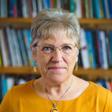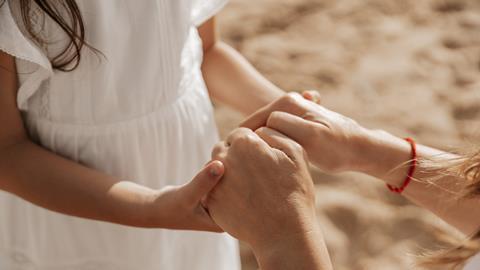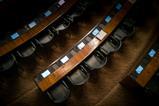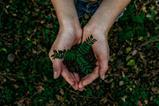Veronica Zundel shares the personal impact of her mother’s fostering and adoption story
In September 1914, at the start of the Great War, Cossacks invaded the town of Drohobych, an oil town that was then in Poland (it’s now in Ukraine – European borders have a way of shifting). They inevitably went for the Jews, of whom there were many; previously it had been a good place to be Jewish, with only occasional persecution, and the majority of the refineries were owned by Jews. Among those Jewish oilmen was my biological grandfather, Benzion Weber, with his wife Ottilie (known as Etie) Horoschowska. They managed to join a few hundred other Jews fleeing Drohobych towards Vienna – it was then all part of the same Austro-Hungarian empire. With them went their four surviving children (one had died in infancy), and, still in Etie’s womb, my mother.
The story goes that on their long journey to Vienna, the couple got separated – no one knows how or why. Consequently, my grandmother arrived in Vienna alone, with no means to support her by now five children – my mother was born in May 1915 in Vienna. Etie placed the four older children in the Jewish orphanage, while my mother Genia, known as Jenny, was fostered with a Jewish family.
Jenny’s complex journey
The first family was found to be neglecting Jenny – all credit to the presumably Jewish fostering agency who monitored the children in their care – so they moved her to a Gentile family, where she was loved, but somewhat lost among a number of children. At just two, she had to carry a plate of hot sauerkraut to the table, tripped and fell with her chest onto the plate. All her life she wore scarves to hide a scar just below her neck – a scar no one could see but her. She called the mother of this family ‘Mutti’, but at still not quite three, she was moved to the Jewish couple who would eventually adopt her, the childless Elsa and Julius Steinschneider. At first she was confused, asking “Wo ist die Mutti?” (“Where’s Mummy?”) – no one explained things to children in those days. However right into her 90s she could still recite every item of food on the table for the high tea with which they welcomed her – goodness knows how they obtained all this, as there was still an Allied blockade, which had caused my mother to have rickets.
No one explained things to children in those days
Elsa and Julius had to wait to adopt Jenny, as there was a strange law in Austria that a couple could not adopt until the prospective father was 50. And it wasn’t always an easy ride – my mother must have been traumatised by her early experiences and was a very independent child, who often clashed with her mother. On occasions her mother would say “Was einem Gott nicht gibt, soll man nicht nehmen” – “What God doesn’t give, you shouldn’t take.” Yet in spite of what I see as an appalling statement to an adopted child, my mother still maintained to the end of her days that she had a very good mother.
Learning the full story
As my mother didn’t tell me anything about her adoption till I was in my early 30s (she had planned to tell me when I got married, but she’d clearly concluded by then that I wasn’t going to!), for half my life Elsa Steinschneider was the only grandmother I knew of on my mother’s side. So, although she was exterminated eleven years before I was born, she was my ‘real grandmother’ too. Etie Horoschowska, my birth grandmother, died in the Spanish flu pandemic in 1918, and my birth grandfather Benzion Weber of stomach cancer in 1926. Julius Steinschneider, my adoptive grandfather, died of lung cancer in 1931. Due to the Nazi annexing of Austria, my mother had to leave for the UK in 1939 and never saw her adoptive mother again.
On her deathbed in 2012, my mother maintained that she had been very lucky in life – this despite having got through four mothers before she was three, having lost her father at 16, her mother at 23, and her only son to suicide when he was just 27. Perhaps she was right: had she stayed with her birth parents, she would have been orphaned by the age of eleven. Her greatest piece of ‘luck’ (I’d call it grace) was meeting and marrying my lovely Gentile father.
Such is my own connection with fostering and adoption. It teaches me a number of things: that blood ties are not always the most important; that children, however young, need their situation explained to them; that one should never express regret for having children, whether biologically or by adoption. Above all, that we can all be grateful for being adopted by God, who never regrets it.


































No comments yet